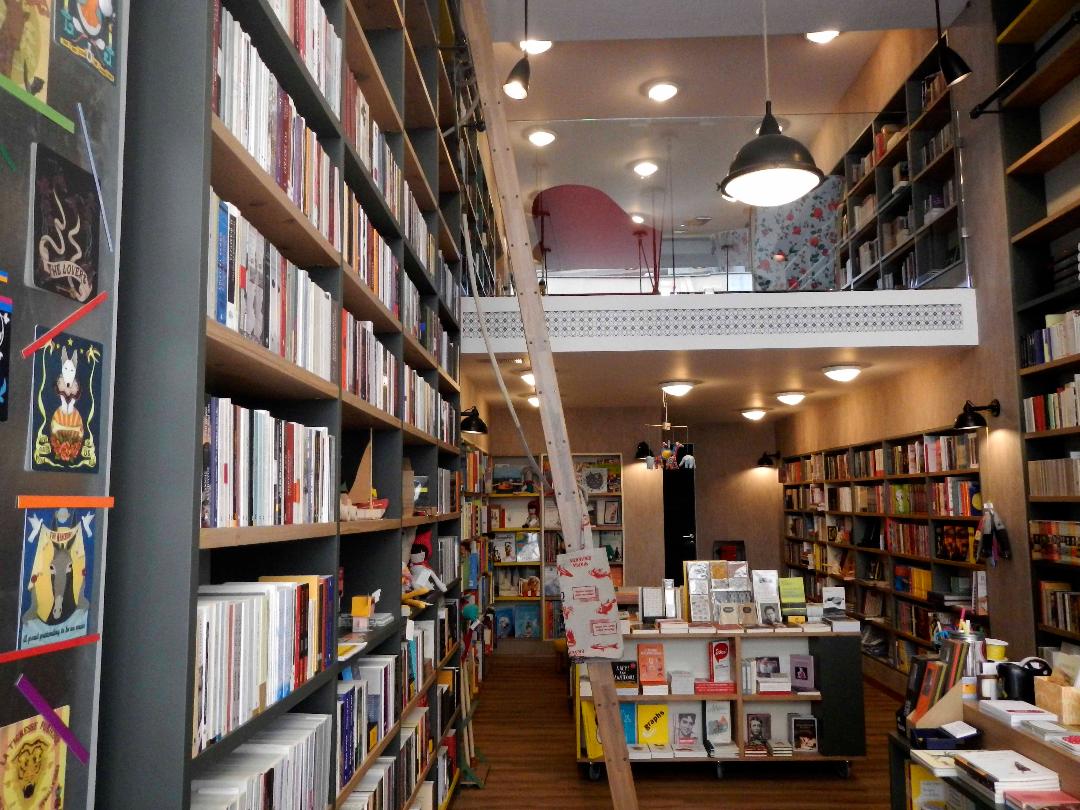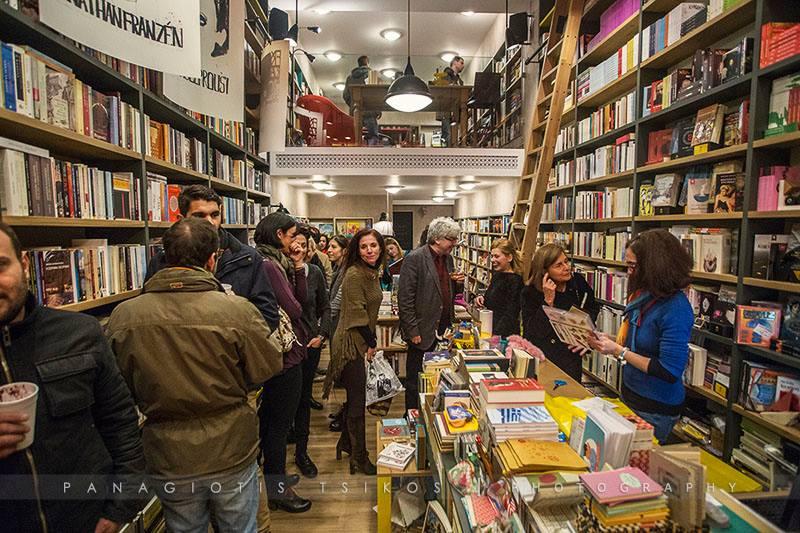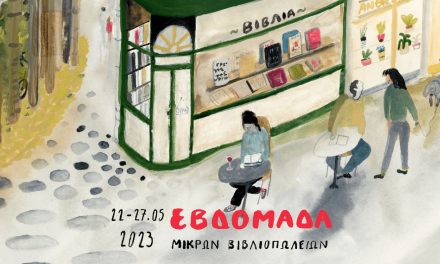Little bookstores constitute an integral part of our culture and our local communities. It’s the place where writers can connect with readers, where we discover new, unknown worlds, where children are captivated by the thrill of reading that can last a lifetime. They are the places that never stop inspiring us, uniting us and spreading the love for books.

Reading Greece* spoke to Korina Alivizatou, owner of Sporos Bookstore, about the role of little bookstores and their influence on reading preferences, as well as the challenges they are faced with and the prospects ahead.
Since 2015, Sporos has been a point of reference for book lovers in Kifissia. What’s the story behind this venture of yours?
Sporos (‘seed’ in English) has always been a life goal. Having worked as a student and for many years afterwards in a large bookstore chain, I realized that any other professional activity would be a deviation from this goal. Professional experience, artistic studies, dedication, hard work and the valuable contribution of my partners contributed to its implementation. Together with my partner Maro Xenaki, we keep alive the pulse of the bookstore, which for nine years has been a place of culture in Kifissia.
What kind of books can readers find in your bookstores?
In the bookstore there are all major categories, with a greater emphasis on literature, modern and classic, by Greek and foreign prose writers, poetry, psychology and the children’s section located on the ground floor. On the upper floor, where there is also the reading room – a small event place, there are books on philosophy, economics, science, politics, art, comics, biographies and selected artistic editions.
How important is the role of little bookstores? How do they influence reading preferences?
Independent bookstores constitute cradles of culture, meeting points for writers, artists, readers as well as places that foster interaction and development of ideas. Interpersonal relationships developed there allow booksellers to consider customers as friends and thus shape reading preferences. At the same time, in little bookstores, booksellers have the chance to discuss and analyze their personal choices.
Which are the main challenges little bookstores face nowadays? How do you respond to these challenges? What about the prospects ahead?
The biggest challenge we are faced with is to gain and maintain the trust of readers so that we can compete against chain bookstores that achieve better deals with publishers and lower retail prices for not fixed book-price titles, as well as against low prices and offer packages of online bookstores which, due to lower costs compared to a physical store, can often achieve prices equal to our own wholesale purchase prices.
Another challenge is the multitasking nature of a bookseller’s job; given that revenues are not enough to cover the respective expenses, we have to develop parallel activities, e.g. organize book presentations, coordinate reading clubs, participate in events that take place outside the bookstore to sell books etc.

Would you say that the recent socio-economic crisis and the pandemic that followed has broken the ties connecting part of the readers with the choices and orientation of traditional publishers, creating an aesthetic and intellectual space that may certainly grow?
There is indeed a shift in quality; every financial purchase is now a form of investment, we all value time and money differently and book purchases are becoming more conscious and less frivolous. Readers no longer want to “kill time”, they want to invest time with quality options. When choosing a book, a good review or a bookseller’s recommendation is often not enough. Readers choose based on the overall course of a publishing house, the rest of the people involved (translator, editor) but also the aesthetics, the quality of the paper, the illustrations. The frequent book presentations certainly contribute to a more complete approach to the work of Greek writers and every year’s the publishing production is of great interest.
In the era of online communication, how have the social media influenced what people choose to read? How have reading preferences changed/evolved during the years?
Social media has introduced some young people to youth and fantasy literature; booktok is a trend that, we must admit, largely determines the choices of teenagers and a part of adults as well. Basically, social media users are looking for the image, the quick information, the caption. I personally think that they don’t constitute a target group for bookstores, but clearly book lovers as well have the chance to be informed more quickly and more thoroughly about new editions and thus have a comprehensive view of what’s going on in the book market. Social media influences are mostly in the field of self-improvement, economics, and books that touch on current affairs.
People turn to classic literature, to new voices, to newcomers in search of an alternative way of writing, that is, they seek either the safety of the classics or the surprise that a new venture can hold for them.
*Interview by Athina Rossoglou
TAGS: LITERATURE & BOOKS | READING GREECE













